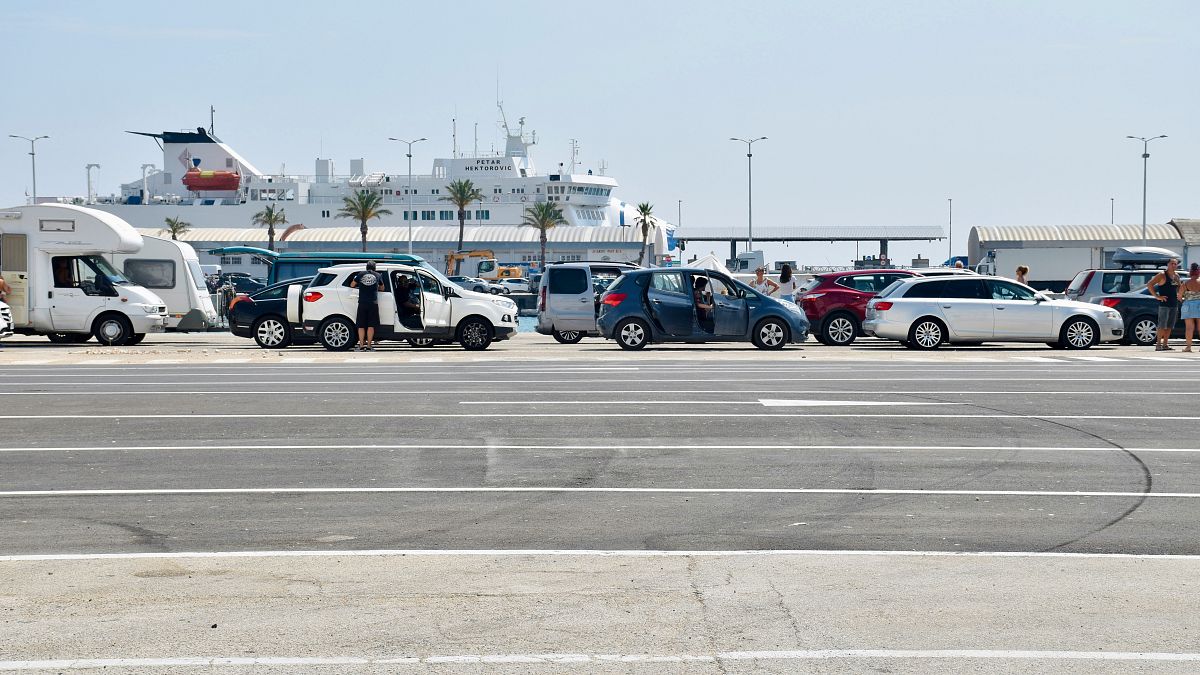Travellers warned of queues at borders as France ramps up checks

France’s current border controls will end on 31 October, but a new set of checks will come into effect from 1 November.
France has announced it will extend internal border controls until April next year.
The current increased checks, introduced due to heightened terrorist threats, were due to end on 31 October.
The controls will be in place along France’s Schengen borders with Belgium, Spain, Luxembourg, Switzerland, Germany and Italy.
Travellers have been warned to expect queues and delays.
In September, Germany introduced similar ramped-up checks which have led to traffic jams at the border.
France steps up border controls amid terrorist concerns
France’s current border controls will end on 31 October, but a new set of checks will come into effect from 1 November.
The heightened security measures will be in place until 20 April 2025.
The extension comes after growing concerns over public safety amid threats of terrorist activity and criminal organisations connected to illegal migration.
Where are France’s increased border checks in place?
The new border controls only affect Schengen zone countries – Belgium, Spain, Luxembourg, Switzerland, Germany and Italy.
If you are entering France from a non-Schengen country, such as the UK, there will be no change to checks as passport and customs controls are already in place.
It will also not affect the requirement for passport stamps for non-EU nationals or the maximum permitted stay of 90 days in Schengen zone countries.
If you fly into France from any Schengen country other than the six that border it, there will be no change in border controls.
How will France’s new Schengen border controls affect travellers?
Normally, travellers passing between Schengen zone countries can move freely without passport checks.
However, countries are permitted to impose temporary increased controls for a set time period if deemed necessary – as occurred during the COVID pandemic for example.
Citing security concerns, France has chosen to ramp up checks along Schengen borders for land, sea and air travel.
This means travellers from Belgium, Spain, Luxembourg, Switzerland, Germany and Italy will have to show a form of ID such as a passport or national ID card.
Non-EU nationals who are resident in France may need to show their carte de séjour too.
Travellers warned of queues at French land border
Travellers most affected will be those crossing into France via land borders. Those arriving by car or bus are advised to allow for extra time.
Germany’s increased security checks have resulted in traffic jams and queues at borders.
Those travelling between France and Germany should be aware they might face checks at both borders.
What other countries have increased checks at Schengen borders?
Austria has increased checks in place with Slovenia and Hungary until 11 November.
Denmark, Norway and Sweden have stepped up border security on all internal borders until 11 November.
In Slovenia, checks are in place at the border with Croatia and Hungary until 21 December.
Related
Brits forced to pay fee to visit these 30 countries…
UK tourists will be required to pay a fee to visit 30 countries in Europe under new European Union (EU) travel rules.The rules mean British holidaymakers will n
The beautiful European island with just 148 locals
Irakleia is a beautiful island in the Minor Cyclades of Greece, nestled in the heart of the Aegean Sea and just an hour away from Naxos. Officially recorded t
Warning issued for Brits flying easyJet and Ryanair to popular…
Passengers flying with Ryanair, easyJet and British Airways should expect disruption (Picture: Urbanandsport/NurPhoto via Getty Images) Passenge










